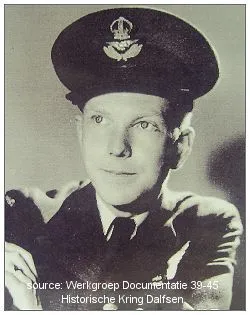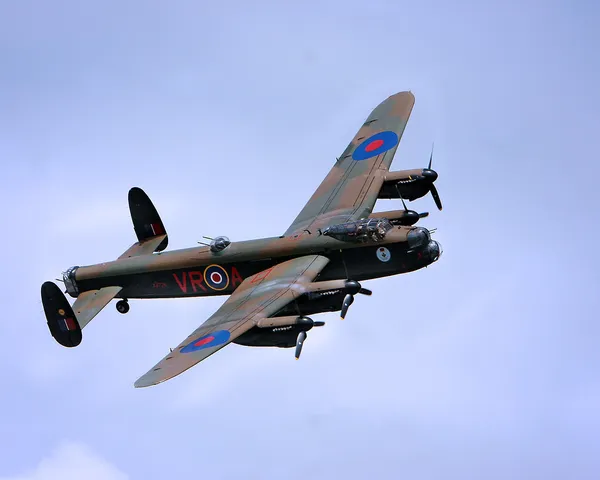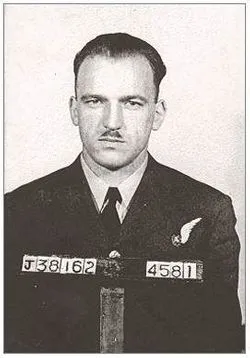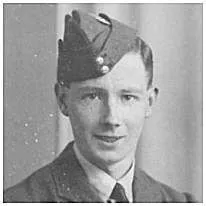Dunsmuir, John Murray (Flying Officer)
Killed in Action 1944-September-23


Birth Date: 1918
Born: Vancouver, Metro Vancouver Regional District, British Columbia, Canada
Parents: Son of John Dunsmuir and Janet Wilson (nee Adrian) Dunsmuir, of Vancouver, British Columbia, Canada; husband of Thelma Adelaide Dunsmuir, of Edmonton, Alberta.
Spouse: Husband of Thelma Adelaide Dunsmuir, of Edmonton, Alberta.
Home: Vancouver, British Columbia
Enlistment:
Enlistment Date: unkown date
Service
RCAF
Unit
50 (B) Sqn- Squadron (RAF)
Sic Fidem Servamus Thus we keep faith
Base
RAF Skellingthorpe
Rank
Flying Officer
Position
Air Gunner (Rear)
Service Numbers
J/21396
Target
Crew or Other Personnel
Lancaster ME700
Mission
Lancaster Mk.I ME700
Bombing Ladbergen Germany 1944-September-23 to 1944-September-23
50 (B) Sqn (RAF) RAF Skellingthorpe
50 Squadron (From Defence To Attack) RAF Skellingthorpe. Lancaster I aircraft ME 700 VN-V was intercepted on the return flight from a night operation to bomb targets in Ladbergen, Germany and shot down at 23:31 by night fighter pilot Hauptman Dietrich Schmidt of 8/NJG1. The bomber crashed at Welsum near Dalfsen in Overijssel, Netherlands with the loss of four aircrew members
Flying Officer John Murray Dunsmuir (RCAF), Flying Officer Angus Beverley Harvey (RCAF), Flight Sergeant Raymond Larcome (RAFVR) and Flight Sergeant Eric Henry Tunnell (RAFVR) were all killed in action
Flying Officer Oliver George Korpela (RCAF), Flying Officer Charles Dallyn Lucas (RAFVR) and Sergeant Henry Harrison MacFarlane (RAFVR) all survived and avoided capture as Evaders
Addendum 2: According to the pilot, Flying Officer Korpela (RCAF), they had dropped their bombs and were on the way home when they realized they were off course. They were attacked by a German fighter and the Lancaster burst into flames. The pilot soon realized the aircraft was beyond saving: the plane was burning and full of smoke; the navigator and wireless operator were dead; the intercom was out of order and the air-gunners could not be reached either physically nor by intercom. The order was given to abandon the aircraft, the flight engineer and the bomb aimer complied and shortly after Flying Officer Korpela also jumped. Flying Officer O. Korpela (RCAF), Sgt. H. MacFarlane (RAF), and Sergeant C. Lucas (RAF) were Evaders. Detail provided by N. Murphy, Windsor, Ontario
Nachtjagd Combat Archive 1944 Part 4 24 July - 15 October by Theo Boiten, page 86
Lancaster serial: ME700

Canadian Warplane Heritage Museum
The Avro Lancaster is a British Second World War heavy bomber. It was designed and manufactured by Avro as a contemporary of the Handley Page Halifax, both bombers having been developed to the same specification, as well as the Short Stirling, all three aircraft being four-engined heavy bombers adopted by the Royal Air Force (RAF) during the same wartime era.
The Lancaster has its origins in the twin-engine Avro Manchester which had been developed during the late 1930s in response to the Air Ministry Specification P.13/36 for a capable medium bomber for "world-wide use". Originally developed as an evolution of the Manchester (which had proved troublesome in service and was retired in 1942), the Lancaster was designed by Roy Chadwick and powered by four Rolls-Royce Merlins and in one version, Bristol Hercules engines. It first saw service with RAF Bomber Command in 1942 and as the strategic bombing offensive over Europe gathered momentum, it was the main aircraft for the night-time bombing campaigns that followed. As increasing numbers of the type were produced, it became the principal heavy bomber used by the RAF, the Royal Canadian Air Force (RCAF) and squadrons from other Commonwealth and European countries serving within the RAF, overshadowing the Halifax and Stirling. Wikipedia




